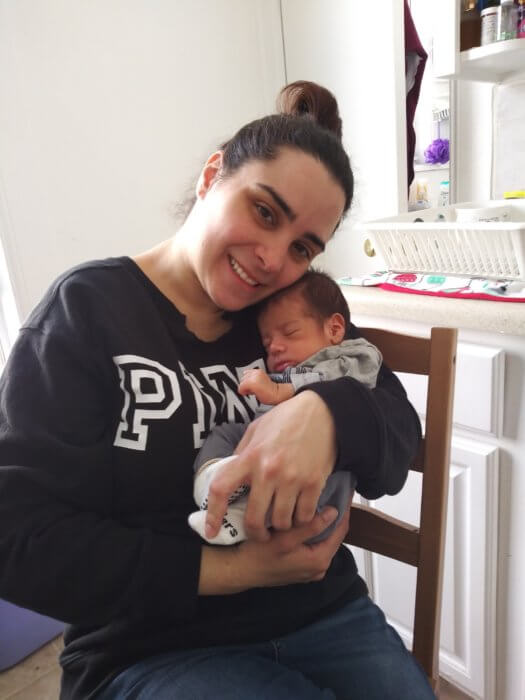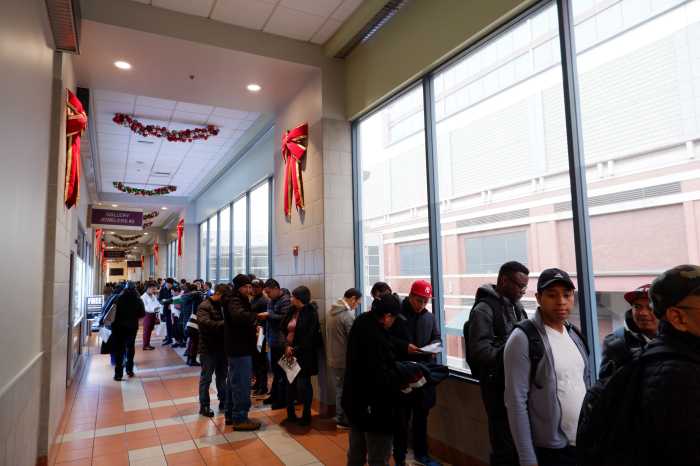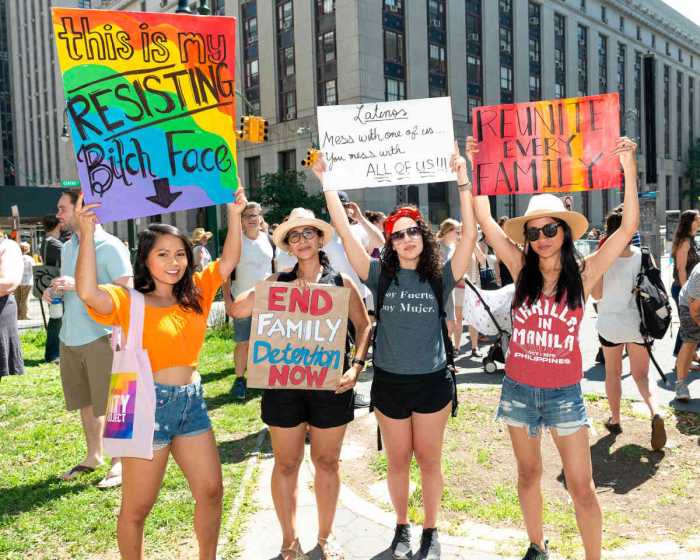Jessica was at home in Brooklyn one February morning when a group of immigration agents knocked on her door, claiming they were looking for a man by an unfamiliar name. At first, she didn’t realize they worked for US Immigration and Customs Enforcement.
“They had ‘ICE’ written on their shoulder, but they were covering it. It just said ‘Police,'” said Jessica, who declined to give her last name out of fear of reprisal.
Unable to find their suspect, the officers left. But hours later, they turned up at the workplace of Jessica’s partner — a native of Mexico — and took him into their custody.
“They went to his job and picked him up,” said Jessica, who was pregnant at the time. “They came on the phone and said, ‘He’ll call you when he can.’”
Officials first placed Jessica’s partner in a New York City immigration facility before moving him to New Jersey’s Essex County Correctional Facility. On March 4, he was moved again to the Bergen County Jail in New Jersey — about a week after his and Jessica’s baby was born.
Then, coronavirus began to spread.
On March 23, an inmate at the Bergen County Jail tested positive for the novel coronavirus, prompting officials to lockdown the facility and place 15 of the jail’s 450-plus inmates in quarantine.
Following public outcry, a Manhattan judge ordered on Thursday that 10 inmates with underlying health conditions be released from various New Jersey jails, including from Bergen County.
However, family members like Jessica fear that the facility’s poor conditions will allow the disease to spread like wildfire, despite the recent precautions.
“The place is basically torture. It’s dirty, filthy,” said Jessica, adding that the jail has grown so crowded that officials have relocated inmates to a facility previously used for solitary confinement. “The cells they have them in are made for one person, but they have two people in them.”

Relatives of other inmates echoed Jessica’s worries, and added that authorities often don’t give inmates their full medications on time, increasing their vulnerability to the virus.
“There are people in there that suffer from high blood pressure and asthma, and they’re not receiving their full medication,” said Maria, whose family member is being held at the Hudson County Correctional Facility. “They’re in grave danger.”
Correctional officers have also allowed misinformation to run rampant in the jail, Jessica said, sparking fear among the inmates, who relate the rumors to their families over phone calls.
“I don’t know if [the correctional officers] are bullying them, but they said that there are 50 cases of coronavirus in the jail,” Jessica said. “He called me. He was crying.”
In protest of the conditions, dozens of detainees across all four New Jersey detention centers have begun a hunger strike, activists say. On Friday, protesters drove to the Bergen County Jail to stand in solidarity with the strikers and demand that New Jersey Governor Phil Murphy release the 1,500 inmates in ICE’s custody.
Spokespeople for ICE and for the Bergen County Jail did not immediately respond to requests for comment.
“They don’t have gloves or masks or anything — they don’t have the necessary equipment to protect themselves,” said Victoria Ramirez, whose partner is also being detained in Bergen county. “They have to spend time with their family in these conditions.”

























